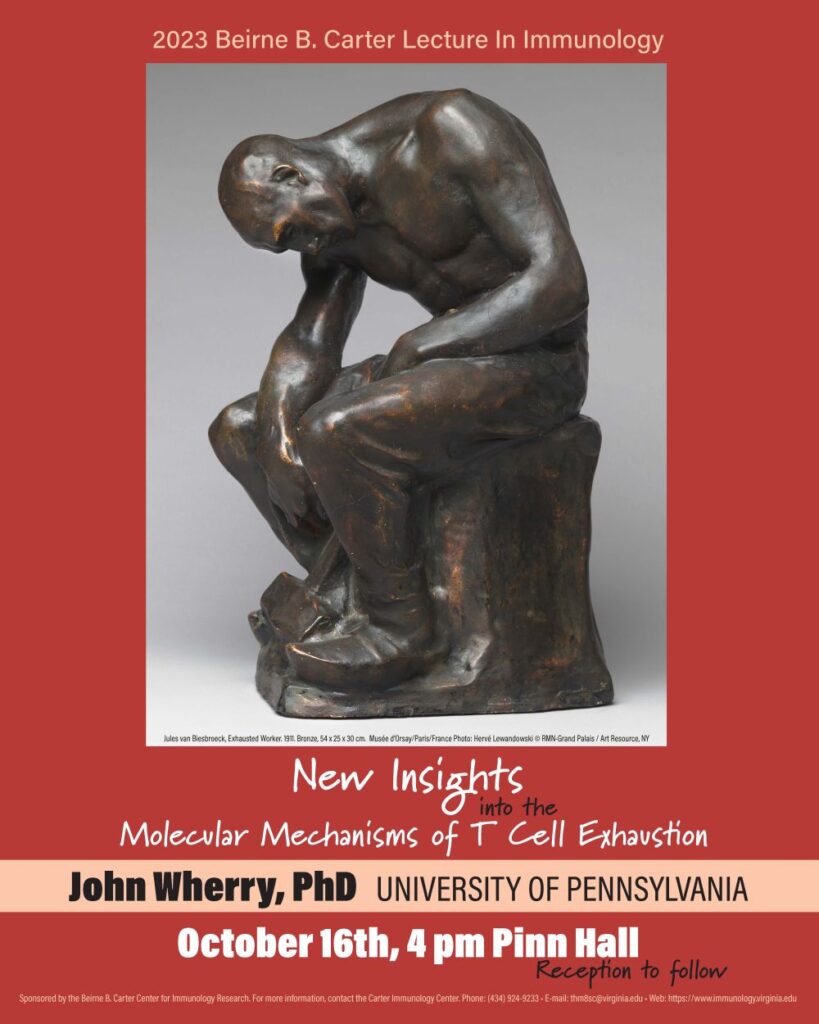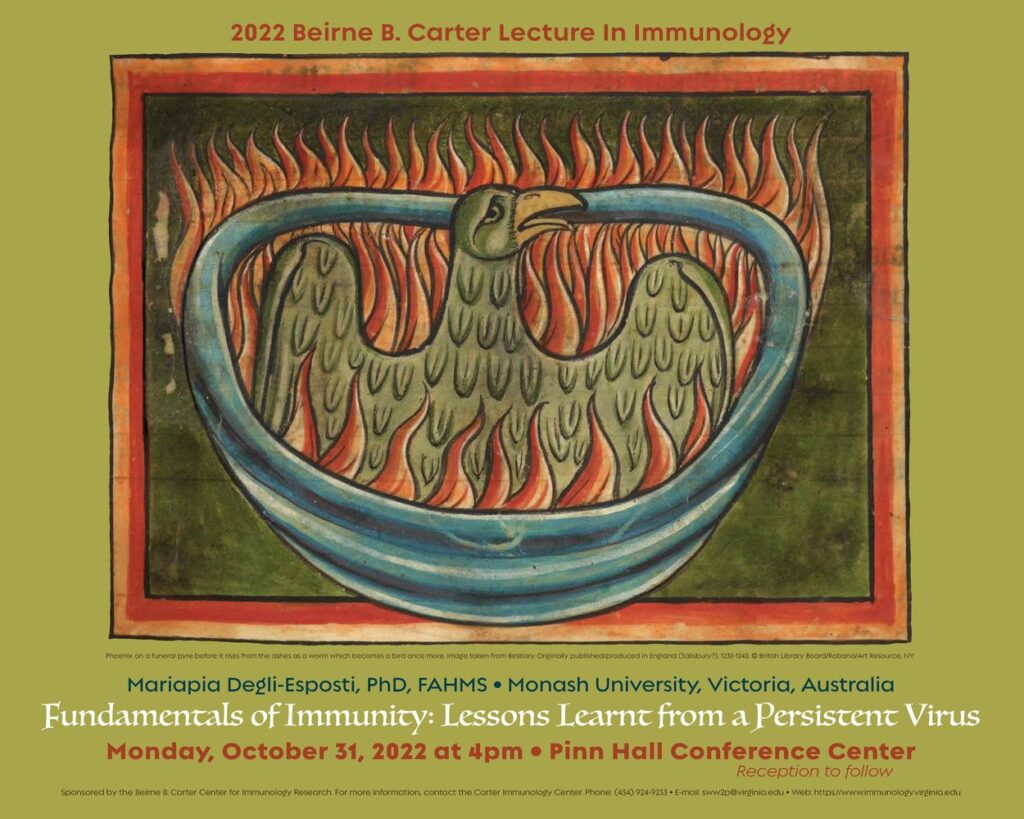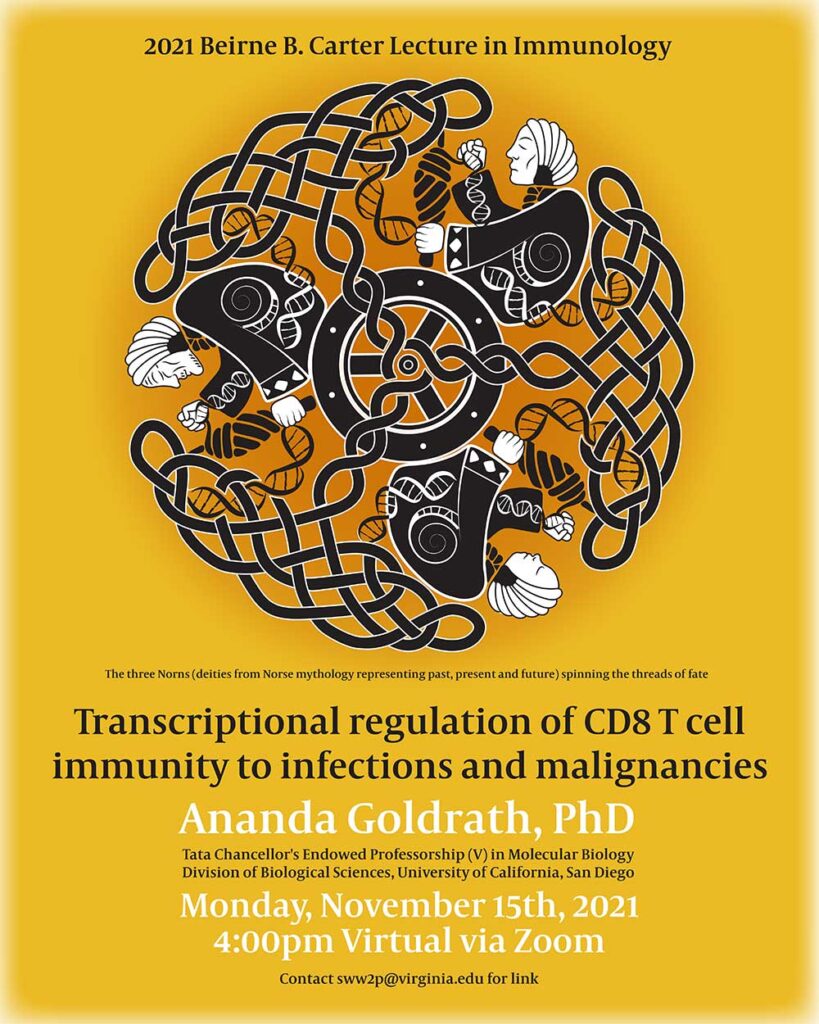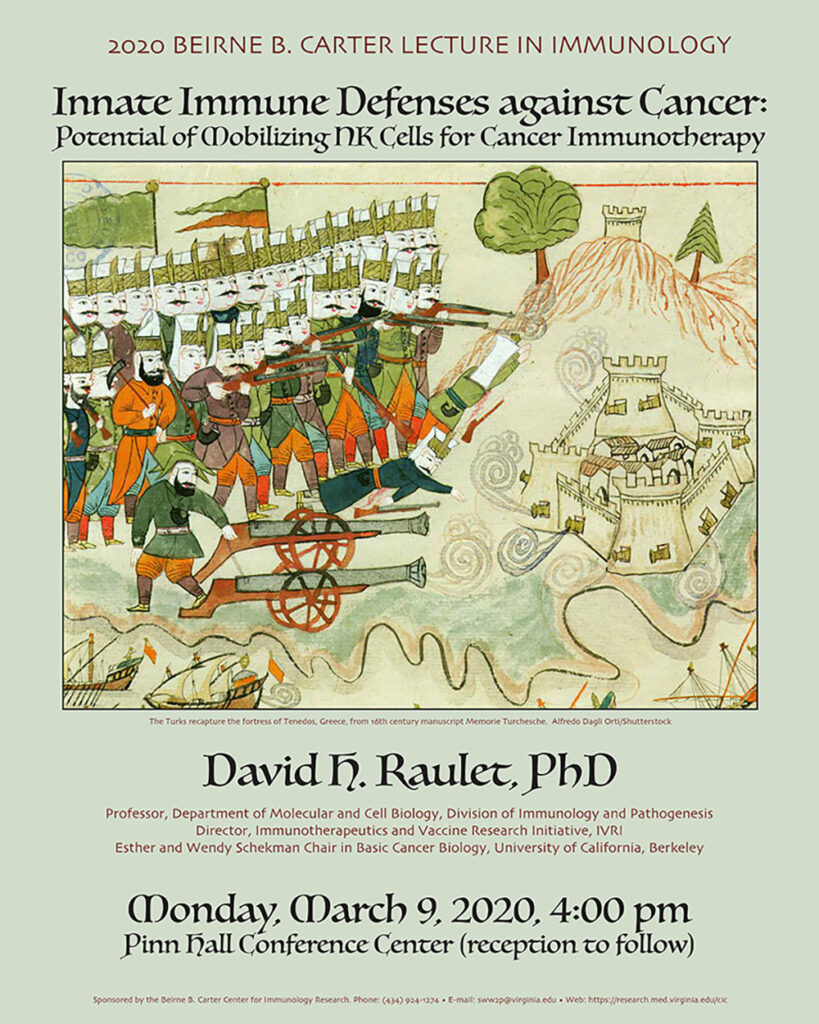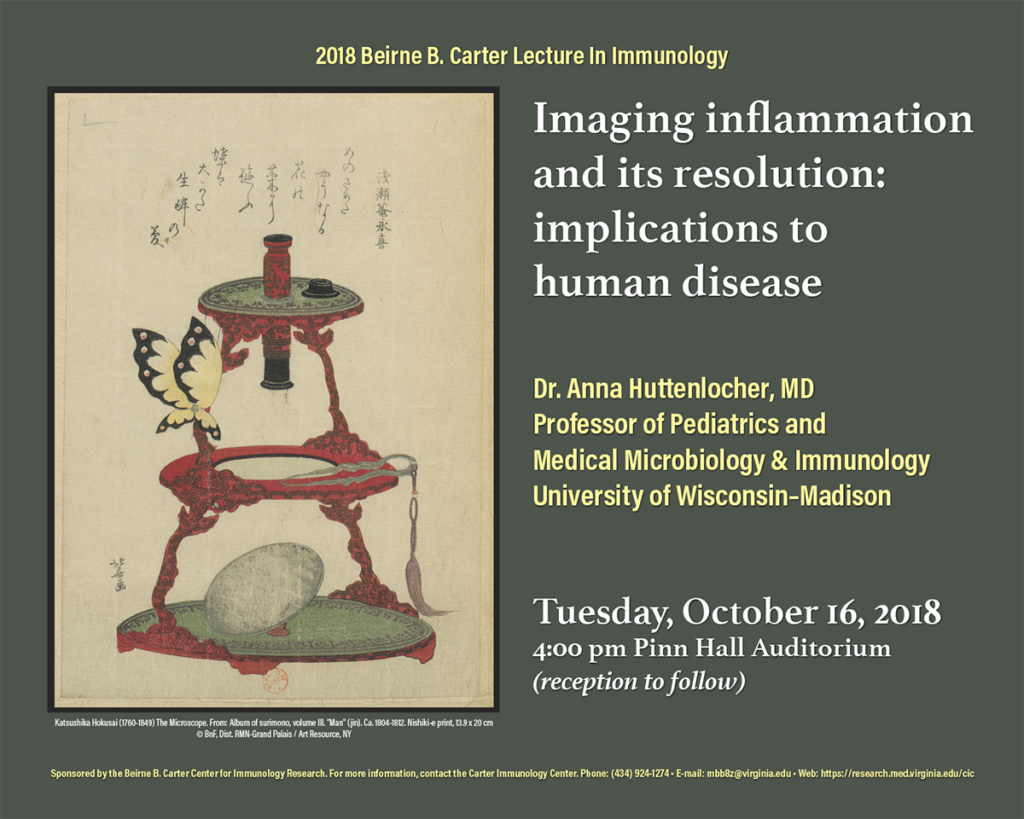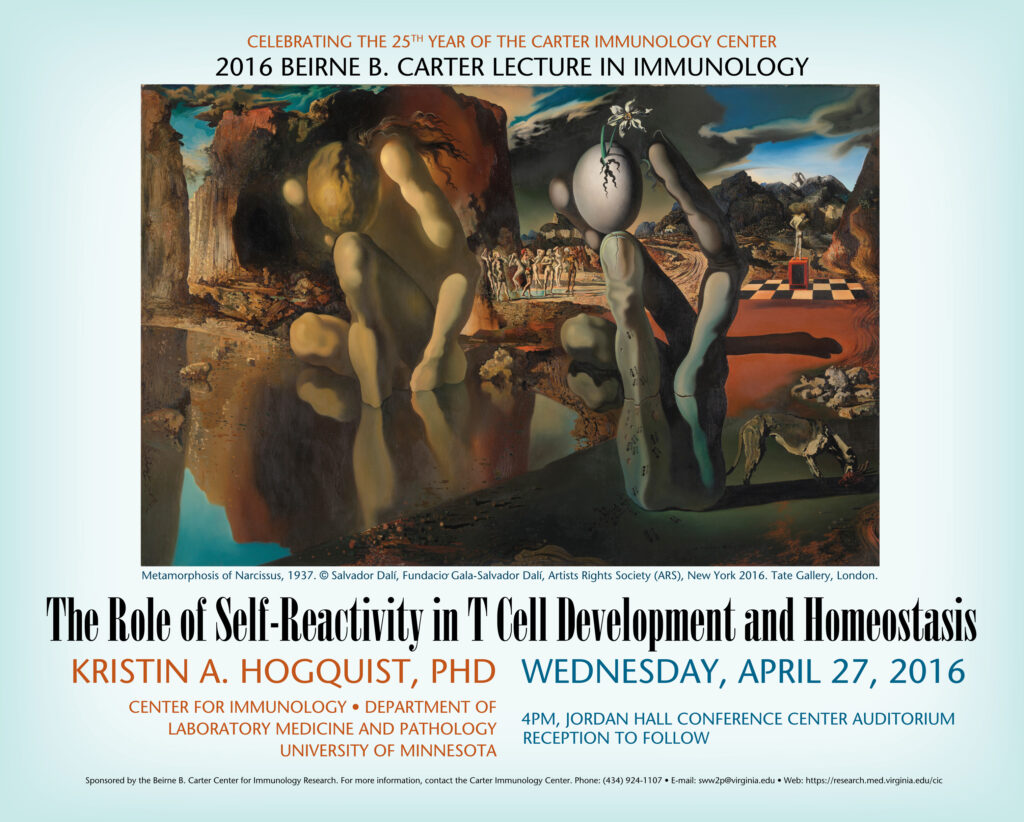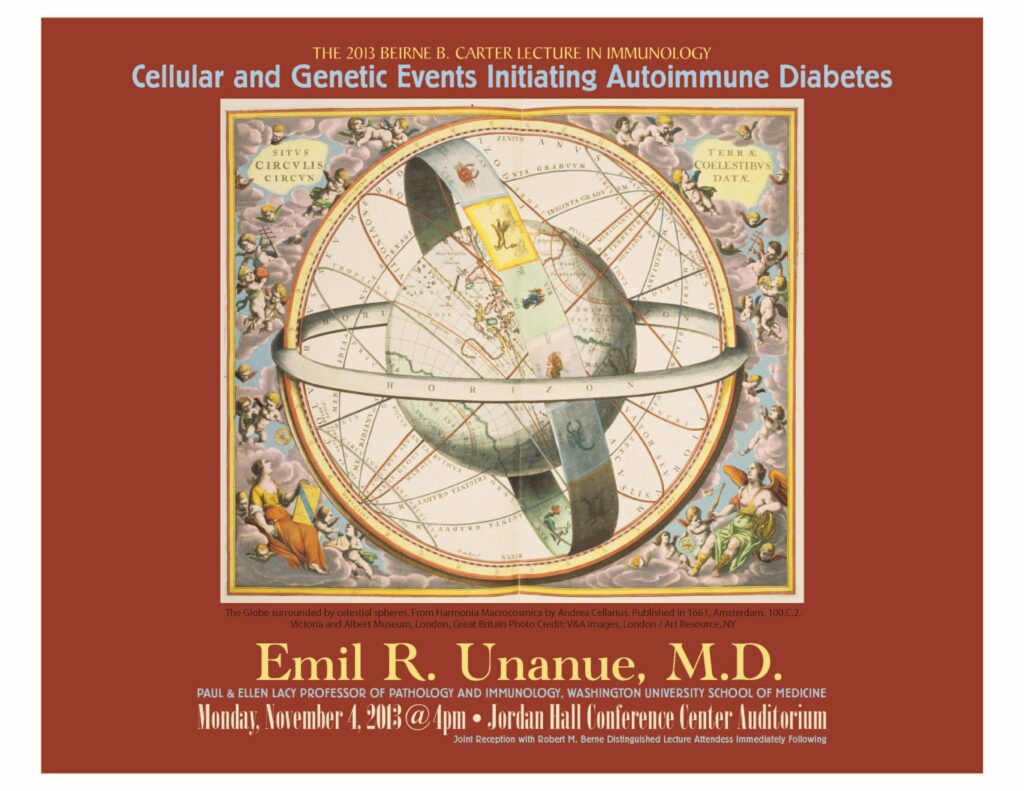The Beirne B. Carter Lecture in Immunology was established to bring a distinguished medical scientist each year to the UVA Health System. In keeping with Mr. Carter’s vision, the scientist is chosen based on his or her research accomplishments contributing to the areas of basic and clinical immunology and to our understanding of human disease and its cure.
Upcoming 2024 Beirne B. Carter Annual Lecture
Date/Time – October 28, 2024 @ 3:00 PM – 4:00 PM EST
Location – Claude Moore Medical Education Auditorium (Room 3110)
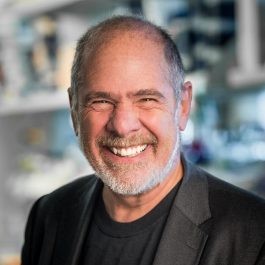
Speaker: Douglas Green, PhD
Title: Perchance to Dream: Sleep and neuroinflammation
Description: Dr. Douglas Green is currently the Peter C. Doherty Endowed Chair of Immunology at the St. Jude Children’s Research Hospital. As an eminent figure in immunology and cell biology, Dr. Green has dedicated his career to understanding the fundamental processes of cellular life and death, and how these mechanisms influence health and diseases. His lab explores molecular interactions and biochemistry at the single-cell level using cutting-edge omics and computational approaches to answer pivotal questions about cell survival and immunological responses. His groundbreaking research sheds light on how these cellular mechanisms contribute to catastrophic diseases, particularly in children. Dr. Green has earned numerous awards and recognitions, including membership in the National Academy of Sciences and one of the top 100 most cited scientists of all time. His work not only advances our understanding of immunology but also translates into potential therapeutic interventions for a wide range of diseases. In his Carter lecture, Dr. Green will discuss recent unpublished studies from his lab, focusing on sleep and neuroinflammation.
Schedule:
3:00 PM – Welcome and Introduction – Jie Sun, PhD
3:05 PM – Perchance to Dream: Sleep and neuroinflammation – Douglas Green, PhD
4:00 PM – Reception to follow from 4:00 PM – 5:00 PM in Pinn Hall G1 & G2
Past Beirne B. Carter Annual Lectures
2003
Ralph Steinman, MD, PhD
Department of Cell Physiology and Immunology, Rockefeller University
The control of immunity and tolerance by dendritic cells
2002
Gerald R. Crabtree, MD
Professor of Pathology and Developmental Biology, Stanford University School of Medicine
Converting graded signals to discrete developmental outcomes
2001
Philippa Marrack, PhD
Investigator, Department of Immunology, Howard Hughes Medical Institute, National Jewish Medical and Research Center
T cell life, death and memory
2000
Paul M. Allen, PhD
Robert L. Kroc Professor of Pathology & Immunology, Department of Pathology & Immunology, Washington University
Physiology of Tumor Rejection: Insights from a Transgenic Model
1999
Craig Thompson, MD
Director, Madlyn Abramson Family Cancer Research Institute, University of Pennsylvania Cancer Center
Control of lymphocyte survival: implications for lymphocytes in health and disease
1998
Roger M. Perlmutter, MD, PhD
Senior Vice President of Research, Merck & Co., Inc.
The LNK Family of Signal Transducing Molecules
1997
Peter C. Doherty, PhD
St Jude’s Children Research Hospital
Immunity to a Persistent Gamma Herpesvirus
1996
Klaus Rajewsky, MD
Institute for Genetics, University of Cologne
Genetic Approaches to the Study of Normal and Malignant B Cell Development
1995
Richard Klauser, MD
Chief, Cell Biology abd Metabolism Branch, National Institutes of Child Health and Development
A Cell Biologist Looks at the T Cell Receptor
1993
Leroy Hood, MD, PhD
University of Washington School of Medicine
T Cell Receptors: Molecular Recognition and Autoimmunity
1992
Hugh O. McDevitt, MD
Stanford University School of Medicine
Peptide Interactions with Class II MHC Molecules in Experimental Allergic Encephalomyelitis

